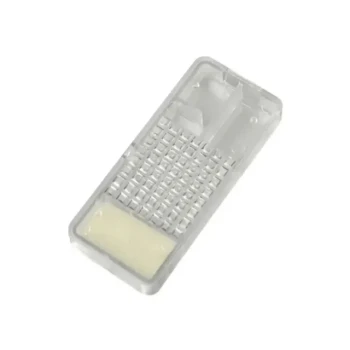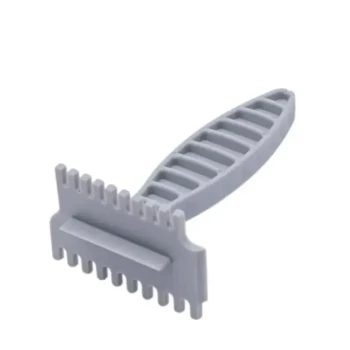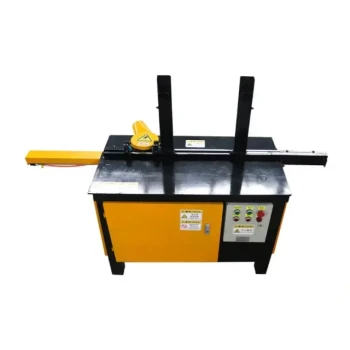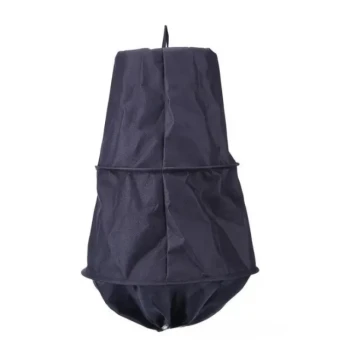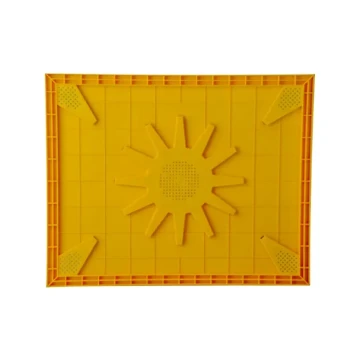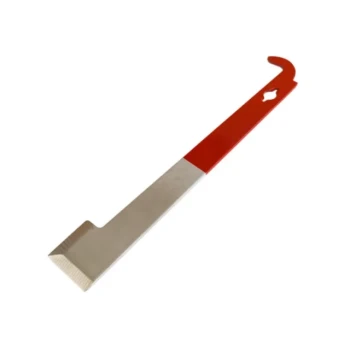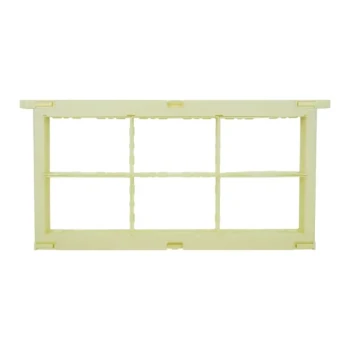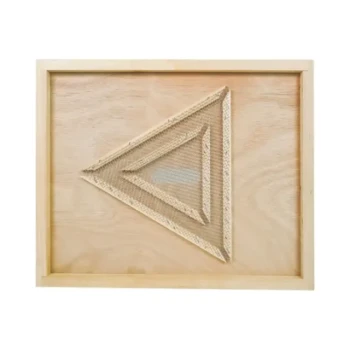At its core, a mating nuc is a specialized miniature beehive. Its primary function is to serve as a temporary nursery for raising and mating new queen bees. This small, resource-efficient environment is optimized for the critical early stages of a queen's life, not for long-term honey production or colony growth.
The fundamental advantage of a mating nuc is efficiency. It allows a beekeeper to create the maximum number of new, mated queen bees while using the absolute minimum number of bees, brood, and food resources from their stronger production hives.
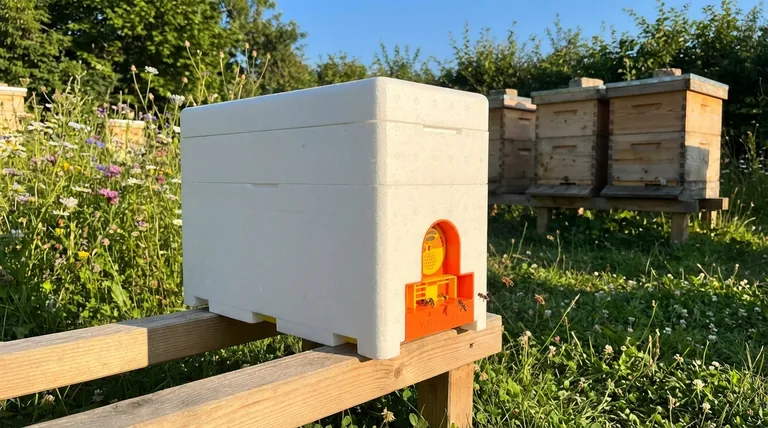
The Core Purpose: Efficient Queen Rearing
A mating nuc, sometimes called a "baby nuc," is a tool designed with a single, clear objective in mind: producing a viable, egg-laying queen.
What Defines a Mating Nuc?
A mating nuc is significantly smaller than a standard hive in every dimension. It holds only a handful of tiny frames, just enough to support a queen, a few hundred worker bees, and a small patch of brood.
Many queen producers build their own, leading to a lack of size standardization across the industry. This is in contrast to the highly standardized full-size Langstroth hives.
Optimized for the Mating Flight
The small population allows a beekeeper to easily introduce a virgin queen cell or a newly emerged queen. After she emerges, she will leave the mating nuc on one or more "mating flights" to mate with drones from surrounding colonies.
The Goal: A Proven, Laying Queen
After successfully mating, the queen returns to the nuc and begins laying eggs. The beekeeper can then easily inspect the tiny frames to confirm a good laying pattern. Once proven, the queen is ready to be introduced into a full-size colony that needs her.
Why Not Just Use a Full-Sized Hive?
Using a large, standard hive for mating a single queen is incredibly inefficient. Mating nucs solve this by optimizing for the specific needs of queen rearing.
Conservation of Resources
The most significant advantage is the conservation of bees and brood. A mating nuc can be started with just a single cup of bees and a small piece of brood comb.
This leaves more resources in the production hives, where they can focus on honey production and colony expansion.
Reduced Competition
In a large apiary with many mating nucs, the small populations reduce competition for food sources. This allows a beekeeper to operate many queen-rearing units in a single location without depleting local nectar flows.
Ease of Management
The small size makes it incredibly easy to find and catch the queen. Locating a single queen in a hive with 50,000 bees is a challenge; finding her among a few hundred in a mating nuc takes only seconds.
Understanding the Trade-offs
The specialized nature of a mating nuc brings critical limitations that every beekeeper must understand.
Not for Long-Term Housing
A mating nuc is a temporary tool, not a permanent home. The colony is too small to regulate its temperature effectively, defend itself, or store adequate food for winter.
Once the queen is proven, she and her small retinue of bees must be moved to a larger nucleus or full-size hive.
Vulnerable to Pests and Robbing
The small population has very weak defenses. They are highly susceptible to pests like wax moths and small hive beetles, and can be easily overwhelmed and robbed of their food by stronger nearby colonies.
Distinguishing from Standard Nucs
It is crucial to distinguish a mating nuc from a standard 5-frame nucleus hive. While both are smaller than a full hive, a standard nuc is much larger and is used for making splits or housing weaker colonies long-term. A mating nuc is too small for these purposes.
Making the Right Choice for Your Goal
Using a mating nuc depends entirely on your specific objective as a beekeeper.
- If your primary focus is raising multiple queens: The mating nuc is the essential, purpose-built tool for maximizing efficiency and output.
- If your primary focus is strengthening a weak colony: A standard, larger 5-frame nucleus hive is the correct tool for the job.
- If your primary focus is preventing a colony from swarming: Making a split into a standard 5-frame nucleus hive is the recommended strategy.
Ultimately, the mating nuc is a powerful instrument for the specific and delicate task of creating new queen bees.
Summary Table:
| Feature | Description |
|---|---|
| Primary Use | Temporary nursery for raising and mating new queen bees. |
| Key Advantage | Maximum queen production with minimal bees and resources. |
| Ideal For | Beekeepers focused on raising multiple queens efficiently. |
| Not Ideal For | Long-term colony housing, honey production, or swarm prevention. |
Ready to Optimize Your Queen Rearing Operation?
For commercial apiaries and beekeeping equipment distributors, efficient queen production is key to scaling your business. HONESTBEE supplies the high-quality, durable beekeeping supplies and equipment you need to succeed.
Contact our wholesale team today to discuss how our products can help you maximize your queen-rearing efficiency and profitability.
Visual Guide
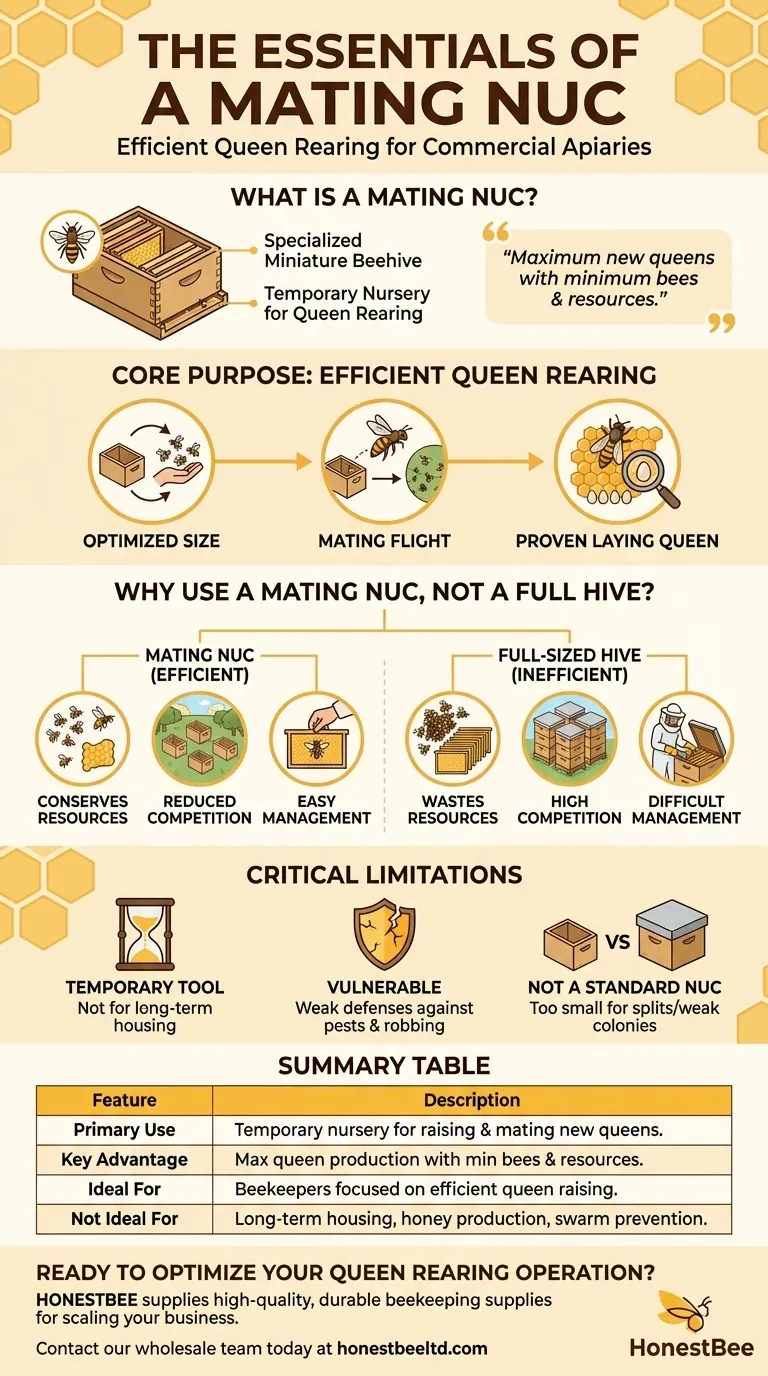
Related Products
- Portable Bee Mating Hive Boxes Mini Mating Nucs 8 Frames for Queen Rearing
- Twin Queen Styrofoam Honey Bee Nucs Mating and Breeding Box
- Styrofoam Mini Mating Nuc Box with Frames Feeder Styrofoam Bee Hives 3 Frame Nuc Box
- Automatic Heat Preservation 6 Frame Pro Nuc Box for Honey Bee Queen Mating
- 5 Frame Wooden Nuc Box for Beekeeping
People Also Ask
- How do additional covers or lids protect stingless bee hives during extreme weather? Enhance Your Colony Resilience
- Why do hive systems represent a significant portion of the initial investment for stingless beekeeping projects?
- Why is painting mating boxes beneficial? Boost Queen Rearing Success & Equipment Lifespan
- How does the manufacturing precision of beehive components influence colonization? Secure Your Apiary Success
- What are the benefits of using small nucs for raising and mating queens? Maximize Queen Production Efficiency





